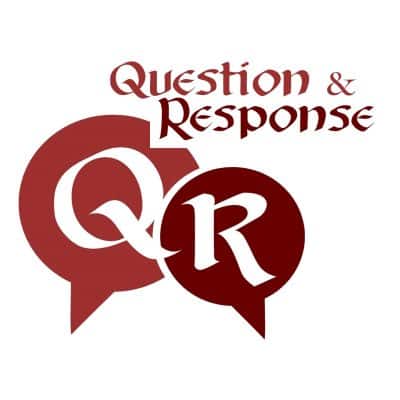Q&R: Why listen to abusive preachers? Don’t! Brad Jersak
Question
I used to listen to a podcast preacher every day on my way to work but I really don’t know why because I always felt beaten up after listening to it. I think it was that I thought he was speaking God’s word so I had no choice but accept everything he said.
Response
I have asked people about why they regularly attend churches or listen to preachers who scold them week after week. These preachers are typically leading rapidly growing mega-churches with skinny-jeans, neo-Calvinist preachers who are very hip but continually harangue the congregation …
From a local pulpit in my region, I heard this (via a recording): “You disgust God. You have no idea how disgusted God is with you,” etc. Or as Mark Driscoll famously said, “God objectively, personally hates some of you.” Week in, week out, and the sheep return. Why?
Is it because they are being transformed by such preaching? Not in the ways that I would hope. I don’t see the fruit of Christlike love or better character or any kind of holiness grow from these branches.
So then, what is the draw? What is it in us that not only endures but even wants or needs the religious smack-down? Part of it is surely just entertaining rhetoric and the adrenaline rush. Like “professional wrestling,” there’s a lot of drama and action and yelling, but no one imagines that it’s ‘real.’
But there’s a deeper issue for many who persist in this type of diet. The ‘weekly spanking’ can seem like a form of penance in that we may feel that the pastoral rebukes purge last week’s sins out of us … We might feel clean, having paid for our crimes and been humbled. Our accusing conscience can take a break for a moment. Now we get a fresh start, like after an angry parent spanks a child and a pseudo-peace is restored. Or even more darkly, after a spouse has been beaten and the tension of when the next beating would occur has been temporarily relieved. We’d want to say, “Stop the abuse! Just leave!” Well, I guess I AM saying that.
Not only do we get a false sense of cleansing for the crimes and misdemeanors of the previous 7 days. We may also gain a sense of entitlement for the forthcoming week, where we misbehave exactly as we did last week, but also carry a sort of license we purchased through the penance endured on Sunday. All of this can be very subliminal but I think also observable.
I wish it were needless to say, “Flee!” The spiritual abuse this involves is not only ugly in and of itself. It accumulates in one’s soul and, over time, changes us. I’ve seen at least four terrible outcomes of this programing.
- + Some people take the ‘worm theology’ to heart and despair. They believe the lie that God hates them and that they are worthless. It is soul-crushing and can develop into Religious PTSD.
- + Others come to recognize the hideousness of the abuse and end up leaving the faith altogether, imagining that God is as horrible as the preacher depicted. They’d rather choose atheism, so they do.
- + A third group may buy into the cheap moralism being preached but, recognizing their inability to measure up, opt for the hypocrisy of a double-life that tears the soul asunder. They may combine the hellfire hatred of sin with a cheap grace that flaunts it. No matter… I can get my spank this Sunday and start afresh.
- + Perhaps worst of all, the fruit of regular spiritual abuse is that it creates an army of wannabe abusers who deflect and project the condemnation outwards onto others. Fierce pride and religiosity pervade and pervert one’s character until one imagines that ministry = abusing, accusing, and castigating others.
To those who’ve experienced this phenomenon, I invite you out. It is not the beautiful gospel of God’s love, grace, and forgiveness. It’s not the only gospel available. It’s not the gospel at all. Remeber the story of the prodigal sons in Luke 15? Do we ever see the Father going out to the pigpen to chastise the younger prodigal? Does he not plead and invite even the bitter elder brother? The true gospel of Jesus sounds like the Father’s exultant, homecoming welcome in that parable.
To the younger son, I hear no chastisement. His wanderings were punishment enough. What does the Father say?
‘Quick! Bring the best robe and put it on him. Put a ring on his finger and sandals on his feet. Bring the fattened calf and kill it. Let’s have a feast and celebrate. For this son of mine was dead and is alive again; he was lost and is found.’
And to the older son?
‘My son, you are always with me, and everything I have is yours. But we had to celebrate and be glad because this brother of yours was dead and is alive again; he was lost and is found.’
Let this message and this tone and this joy be the measure of our gospel, for they were composed by Christ himself.











 Plain Truth Ministries | Box 300 | Pasadena, CA 91129-0300
Plain Truth Ministries | Box 300 | Pasadena, CA 91129-0300

